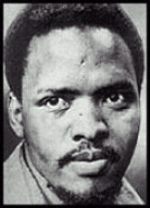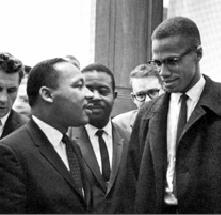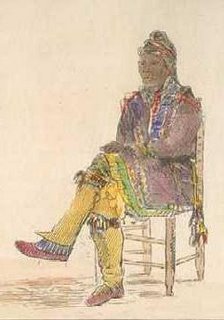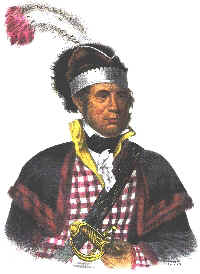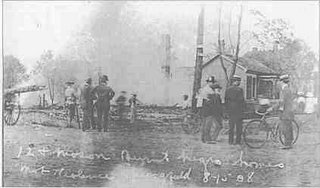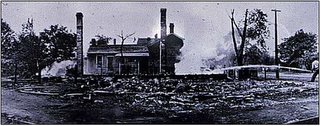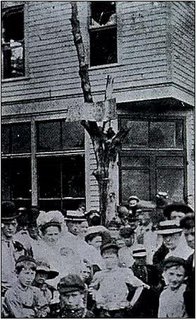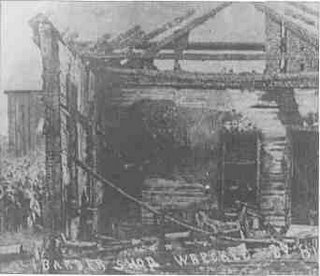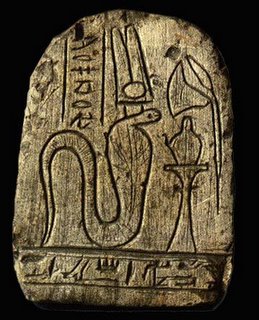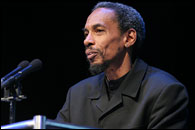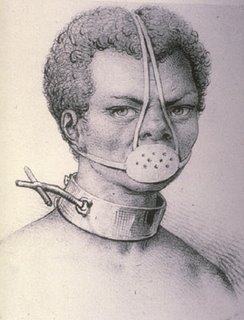
In the year 1837, there was a mutiny in St. Joseph, Trinidad then colony of England.
A detachment of the 1st West India Regiment was stationed there, and among its numbers was a giant African, 6 feet 6 inches tall, the adopted son of a tribal chief. Daaga, as he was called in Africa, had often led his tribe in war against other tribes, selling the prisoners he captured to slave traders. One day Daaga himself was persuaded to board a ship, captured, and carried in chains to Brazil. During the voyage the trading ship was captured by a British patrol ship. Daaga, with other able- bodied men was sent as a free man to the West India Regiment stationed in Trinidad. He was converted to the Christian faith and christened Donald Stewart. In his mind, however, was always a desire for revenge and he roused the seeds of mutiny by his talk. At the full moon of June 1837, he and his followers set fire to the barracks, seized the arms and tried to overwhelm the garrison. Daaga and his mutineers were overcome and after a court martial, he and his leaders were shot.
-----------------------------------------
Writes E.L. Joseph in his "History of Trinidad" (1838).
His head was large; his features had all the peculiar traits which distinguish the Negro in a remarkable degree; his jaw was long, eyes large and protruded, high cheek bones, and flat nosed; his teeth were large and regular "He had a singular cast in his eyes, not quite amounting to that obliquity of the visual organs denominated a squint, but sufficient to to give his features a peculiarly forbidding appearance; - his forehead however, although small in proportion to his enormous head, was remarkable compact and well formed. The whole head was disproportioned, having the greater part of the brain behind the ears; but the greatest peculiarity of this singular being was his voice. In the course of my life I never heard such sounds uttered by human organs as those formed by Daaga. In ordinary conversation he appeared to me to endeavour to soften his voice - it was a deep tenor; but when a little excited by any passion (and this savage was the child of passion) his voice sounded like the low growl of a lion, but when much excited it could be compared to nothing so aptly as the notes of a gigantic brazen trumpet. "
"Daaga sold his prisoners, and under pretense of paying him he and his Paupau guards were enticed on board a Portuguese vessel; they were treacherously overpowered by the Christians, who bound them beside their late prisoners, and the vessel sailed over 'the great salt water'.
"This transaction caused in the breast of the savage deep hatred against all white men - a hatred so intense that he frequently during and subsequent to the mutiny, declared he would eat the first white man he killed; yet this cannibal was made to swear allegiance to our Sovereign on the Holy Evangelists, and was then called a British soldier.
"On the voyage, the vessel, on board which Daaga had been entrapped, was captured by the British. He could not comprehend that his new captors liberated him: he had been over-reached and trepanned by one set of white men,a and he naturally looked on his second captors as more successful rivals in the human, or rather inhuman Guinea trade; therefore this event lessened not his hatred for white men in the abstract.
"It has been said that by making those captured Negroes soldiers, a service was rendered them; this I doubt. Formerly, it was most true that a soldier in a black regiment was better off than a slave; but certainly a free African in the West Indies now is infinitely in a better situation than a soldier, not only in a pecuniary point of view, but in almost every other respect.
"Formerly the 'King's man', as the black soldier loved to call himself, looked (not without reason) contemptuously on the planter's slave, although he himself was after all but a slave to the state; but these recruits were enlisted shortly after a number of their recently imported countrymen were wandering freely over the country, working either as free labourers, or settling, to use an apt American phrase, as squatters; and to assert that the recruit, while under military probation, is better off than the free Trinidad labourer, who goes where he likes and earns as much in one day as will keep him for three days, is an absurdity.
Accordingly we find Lieutenant-Colonel Bush, who commanded the First West India Regiment, think that the mutiny was mainly owing to the ill-advice of their civil, or, we should rather say, unmilitary countrymen. This, to a certain degree, was the fact; but by the declaration of Daaga, and many of his countrymen, it is evident the seeds of mutiny were sown on the passage from Africa.
"On the night of the 17th of June, 1837, the people of San Joseph were kept awake by the recruits, about 280 in number, singing the war-song of the Paupaus. About 3 o'clock in the morning their war-song (highly characteristic of a predatory tribe) became very loud, and they commenced uttering their war cry. This is deferent from what we conceive the Indian war whoop to be: it seems to be a kind of limitation of the growl of wild beasts, and has a most thrilling effect.
"Fire now was set to a quantity of huts built for the accommodation of African soldiers to the northward of the barracks, as well as to the house of a poor black women called Dalrymple. These burnt briskly, throwing a dismal glare over the barracks and picturesque town to San Joseph, and overpowering the light of the full moon, which illumined a cloudless sky. The mutineers made a rush at the barrack room, and seized on the muskets and fuses in the racks. Their leader, Daaga,and a daring Yoruba named Ogston, instantly charged their pieces; the former of these had a quantity of ball cartridges, loose powder and pistol balls, in a kind of gray worsted cap.
Previous to this, Daaga and 3 others made a rush at the regimental store-room, in which was deposited a quantity of powder. An old African soldier, named Charles Dixon, interfered to stop them, on which Maurice Ogston, the Yoruba chief, who had armed himself with a sergeant's sword, cut down the faithful African. When down, Daaga said in English, "ah you old soldier, you knock down." The Paupau then leveled his musket and shot the fallen soldier who groaned and died. The war-yells, or rather growls, of the Paupaus and Yorubas now became awfully thrilling, as they helped themselves to cartridges: most of them were fortunately black, or without ball.
"Never was a premeditated mutiny so wild an ill-planned. Their chief, Daaga, and Ogston seemed to have had little command of the subordinates, an the whole acted more like a set of wild beasts who had broken their cages, than men resolved on war.
A body of the mutineers now made towards the road to Maracas, when the Colonel and his three assistants contrived to get behind a silk-cotton tree, and recommenced firing on them. The Africans hesitated and set forward, when the little party continued to fire on them, they set up a yell and retreated down the hill.
"A part of the mutineers now concealed themselves in the bushes about St. Joseph's barracks. These men, after the affair was over, joined Colonel Bush, and with a mixture of cunning and effrontery smiled as through nothing bad happened, and as though they were glad to see him; although, in general, they each had several shirts and pairs of trousers on preparatory for a start to Guinea, by way of Band de L'Est.
"In the meantime, the St. Joseph's militia were assembled to the number of 40. Major Giuseppi, and Captain and Adjutant Rouseau, of the second division of militia forces, took command of them. They were in want of flints, powder, and balls - to obtain these they were obliged to break open a merchant's store; however, the Adjutant so judiciously distributed his little force as to hinder the mutineers from entering the town, or obtaining access to the militia arsenal, wherein there was quantity of arms. Major Chadds and several old African soldiers joined the militia, and were by them supplied with arms.
"A good deal of skirmishing occurred between the militia and detached parties of the mutineers, which uniformly ended in the defeat of the latter. At length Daaga appeared to the right of a party of six, at the entrance of the town; they were challenged by the militia, and the mutineers fired on them but without effect. Only two of the militia returned the fire, when all but Daaga fled. He was deliberately reloading his piece when a militiaman, named Edmond Luce, leaped on the gigantic chief, who would have easily beat him off (although the former was a strong young man of colour), but Daaga would not let go his gun; and, in common with all the mutineers,he seemed to have no idea of the use of the bayonet. Daaga was dragging the militiaman away, when Adjutant Rouseau came to his assistance, and placed a sword to Daaga's breast. Doctor Tardy and several others rushed on the tall Negro, who was soon, by the united efforts of several, thrown down and secured. It was at this period that he repeatedly exclaimed, while he bit his own shoulder, 'the first white man I catch after this I will eat him."
In the end, Daaga and his fellow mutineers (among them his second(s) in command KWAKU, QASHIE & Cudjoe) were arrested and executed before a large crowd that had gathered to witness the sorry spectacle. I myself prefer to find comfort and solace in silent prayer...
may the ancestors be pleased with daaga
